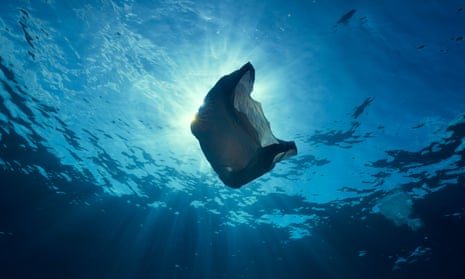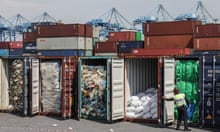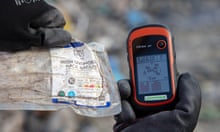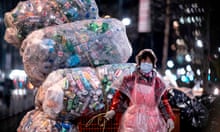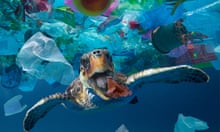Cutting plastic pollution is the focus of a series of proposals being considered by the UK environment secretary, Michael Gove, who has said he was “haunted” by images of the damage done to the world’s oceans shown in David Attenborough’s Blue Planet II TV series.
The government is due to announce a 25-year plan to improve the UK’s environmental record in the new year. Gove is understood to be planning to introduce refundable deposits on plastic drinks bottles, alongside other measures.
The environment secretary is also understood to be considering a proposal to encourage retailers to use fewer types of plastic, as well as another to move councils towards a standardised recycling policy.
The current patchwork of regimes means many types of plastic are not collected from households, depending on where in the country those households are. Together, the two measures will seek to ensure that a greater proportion of the packaging used in the UK can be recycled.
Gove wants an improvement in the rate of recycling, which has reportedly been slipping recently.
“The secretary of state wants to make recycling as easy as possible for households. That is why we will look to accelerate making local authority recycling schemes as consistent as possible through the resources and waste strategy,” a spokeswoman for the Department for Environment, Food and Rural Affairs said.
The department indicated Gove was planning to overhaul the system of recycling targets to focus more on environmental impact than on the weight of material collected. And the drinks bottle deposit scheme would form part of an expected attack on single-use plastics, such as straws and coffee cups, which will seek to reduce the overall amount of plastic being used.
The news came as a coalition of animal welfare and environmental charities warned that more than 100,000 tonnes of plastic packaging would be thrown away and not recycled this Christmas.
The charities, which include Friends of the Earth, the RSPCA, the National Trust and the Wildlife Trusts, estimated that the UK would use 300,000 tonnes of card packaging.
Gove has told journalists he was moved by the scenes in Blue Planet II, which featured marine life struggling to cope with the amount of plastic litter pumped into the seas and oceans by humans.
According to the Times, he is planning to shift the focus of recycling targets towards materials such as plastic and aluminium by moving away from the weight-based measurements favoured by the EU.
Those have led to some councils showing more willingness to collect heavier – though not necessarily as environmentally damaging – materials, such as grass clippings. Gove reportedly hopes that, by shifting the focus on to environmental impact, he can convince councils to concentrate on collecting the other materials.
Moreover, he plans to encourage councils to standardise what they do and do not collect from households, to end the regional disparities across the UK that are believed to be caused by differing contracts between local authorities and waste firms.
The environmental campaign group Greenpeace welcomed the proposals, which are due to be formally set out next year. Its spokeswoman, Louise Edge, said: “It’s a good sign that Michael Gove is thinking about a multi-pronged approach which includes cutting disposable plastic at the source while also making it easier for people to collect and reuse it.”
Martin Tett, from the Local Government Association, told BBC News the standardised recycling regulations would not work on their own. “What we need is packaging that is easily recyclable – this would not only make waste disposal easier for our residents, but save considerable amounts of money and energy, while protecting our environment,” he said.
